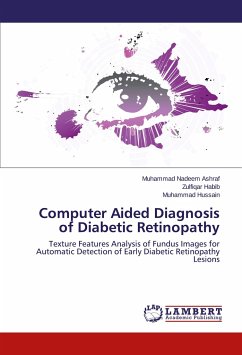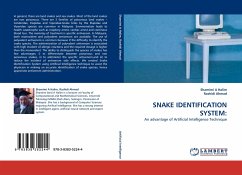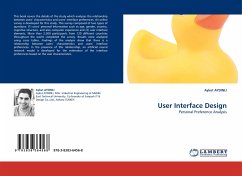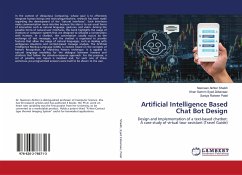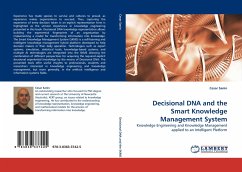
An Architecture For Intelligent Diagnosis of Diabetic Types
An Architecture For Intelligent Diagnosis Of Diabetic Types And Complications Based On Symptoms
Versandkostenfrei!
Versandfertig in 6-10 Tagen
51,99 €
inkl. MwSt.

PAYBACK Punkte
26 °P sammeln!
Information and communication technology can play a vital role in improving healthcare services by providing new and efficient ways of diagnosing diseases. Diabetic is recognized as the fastest-growing disease in the world. Due to insufficient diagnostic mechanisms, the number of undiagnosed diabetes has been in-creasing day by day. And it leads to creating long term complications such as neuropathy, nephropathy, foot gangrene and so on. The objective of this study is to design an intelligent architecture for diagnosing diabetes effectively based on the individual physical symptoms. The archit...
Information and communication technology can play a vital role in improving healthcare services by providing new and efficient ways of diagnosing diseases. Diabetic is recognized as the fastest-growing disease in the world. Due to insufficient diagnostic mechanisms, the number of undiagnosed diabetes has been in-creasing day by day. And it leads to creating long term complications such as neuropathy, nephropathy, foot gangrene and so on. The objective of this study is to design an intelligent architecture for diagnosing diabetes effectively based on the individual physical symptoms. The architecture has been designed by utilizing the combination of neural networks, data clustering algorithms and fuzzy logic techniques. Subsequently, a prototype system has been developed to validate against the diagnostic architecture on the aspect of efficiency and accuracy of di-agnosing diabetes, and its types and complications. The overall qualitative find-ings from this study scored very high, which is 94.50 % accurate.






